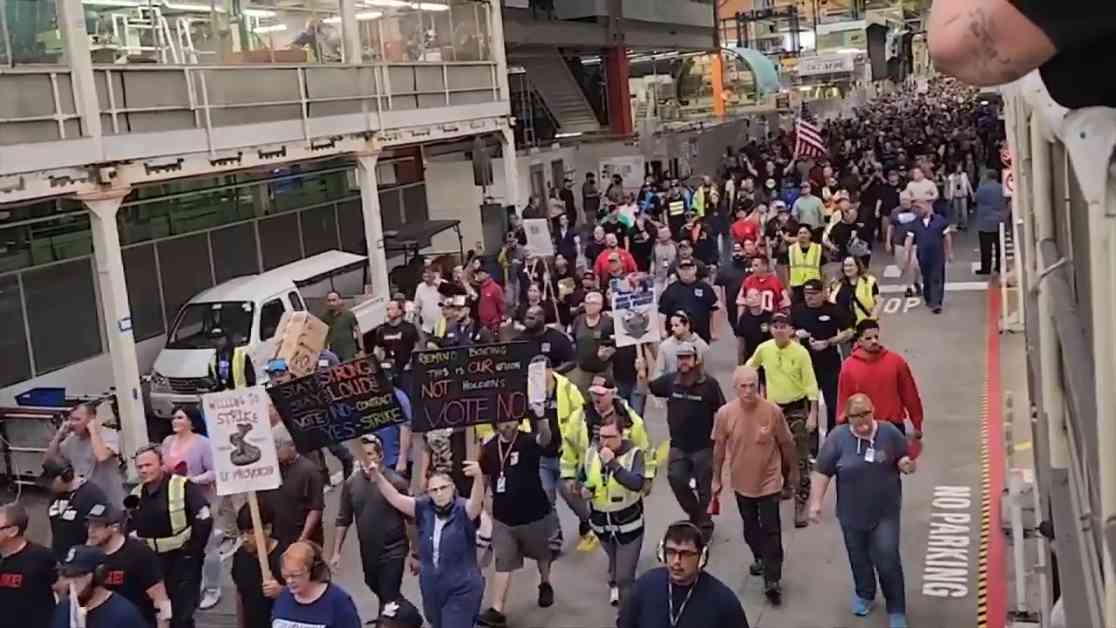Boeing factory workers are facing a crucial decision as they vote on whether to accept a new contract or continue their more than seven-week-long strike. The strike has halted the production of most Boeing passenger planes, causing financial strain on the aerospace giant.
The proposed contract offers pay raises of 38% over four years, along with bonuses for ratification and productivity. The union representing the workers has endorsed the proposal, urging members to accept the offer and end the strike. They believe that further prolonging the strike may not lead to better offers from Boeing.
However, one of the key sticking points in the negotiations has been the issue of traditional pensions, which Boeing has refused to restore. This was a major concern for workers who rejected previous offers. Despite this, if the current proposal is approved, workers could return to work by Nov. 12.
The strike, which began in September, has seen multiple rejected offers from Boeing, with the most recent offer receiving a higher level of support from the workers. The union officials are hopeful that the latest offer will be accepted, as it includes larger pay increases, bonuses, and increased contributions to retirement accounts.
The strike has not only impacted Boeing financially but has also drawn the attention of the Biden administration. Acting Labor Secretary Julie Su has been involved in the negotiations, highlighting the significance of the situation.
Boeing has faced a challenging year with federal investigations and safety concerns surrounding its planes. The company has also announced layoffs and taken measures to prevent a credit downgrade. The strike has further added to Boeing’s financial woes, as it has disrupted the production of key aircraft models.
As the workers cast their votes, the outcome of the decision will have far-reaching implications for Boeing and its employees. The hope is that an agreement can be reached to end the strike and resume production, bringing much-needed stability to both the company and its workers.


